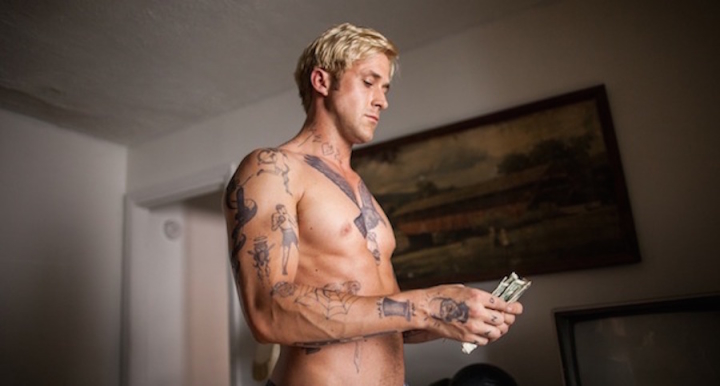
Economic Inequality Is The American Dream?
I read a recent article in Scientific American called “Economic Inequality: It’s Far Worse Than You Think” that talked about America’s unbalanced wealth distribution and the following silence from the less wealthy majority. A quick quote:
“According to Pew Research, most Americans believe the economic system unfairly favors the wealthy, but 60% believe that most people can make it if they’re willing to work hard. Senator Marco Rubio says that America has “never been a nation of haves and have-nots. We are a nation of haves and soon-to-haves, of people who have made it and people who will make it.” Sure, we love a good rags-to-riches story, but perhaps we tolerate such inequality because we think these stories happen more than they actually do.”
I have made a few posts that delve into setting goals and rethinking what it means to make progress in one’s life but never have I spoken about the possibility of failure in a way that critiques the systemic ways the achievement gap is not only the status quo but is, for many, a fight-to-keep reality, something that many people unknowingly perpetuate by a sense of optimism that ignores the patterns of poverty and the rarity of economic success that breaks into the top quarter percentage of the wealthy elite.
This is because when I speak of success I do not think “wealth” in terms of financial gain, rather wealth on a personal level that enriches one’s life and makes it easier and exciting to enrich the lives of others around us. If your goal is to be wealthy, kudos to you, but I have no interest in that for you if, as a person, your wealth in empathy or responsibility to the world is not also enriched.
“The American Dream does not have to be the story of rag-to-riches.”
It’s seductive, of course, to see how many houses and cars someone else purchases without denting their bank accounts. With money comes power, and with power comes freedom; who doesn’t want to be free? But imagine this possibility for The American Dream if released from the constraints of Capitalism and focused on holistic changes that opened the market for individuals to focus more on community building, rewarded developments in cooperative economics, and encouraged a total reconsideration of how one can add value to the world without value meaning only monetary accrual. What would this even mean? It’s difficult to imagine because we have never had a system that rewarded livability to citizens based on how they have changed the lives of others for the better. It’s something to think about.
What are some ways you see the term “The American Dream” being changed in order to open more doors and make it more feasible to not only make a living but to also create better-sustained lives globally? It doesn’t have to be perfect. Sound off below!
Gil Scott Heron – Home Is Where The Hatred Is
~Phillip
Glappitnova is building the best collaborative community in the universe mixing entrepreneurs, creatives, and influencers. We unite everyone for 8 days of eclectic events in Chicago. The opinions expressed here by Glappitnova.com contributors are their own, not those of glappitnova.com, and Glappit LLC. Subscribe to Glappitnova here, or keep up with us on Facebook.
comments
 AI Will Impact 400 Million Jobs by 2030 So Let’s Prepare
AI Will Impact 400 Million Jobs by 2030 So Let’s Prepare
 From Redmoon to Newmoon Theater Announcing Alex Balestrieri on The Global Committee
From Redmoon to Newmoon Theater Announcing Alex Balestrieri on The Global Committee
 Announcing Wingsuiter and Curator Kody Madro on The Global Committee
Announcing Wingsuiter and Curator Kody Madro on The Global Committee
 Glappitnova 2.0
Glappitnova 2.0
 Announcing Creative and Engineer Josh Onwordi On The Global Committee
Announcing Creative and Engineer Josh Onwordi On The Global Committee
 Announcing Global Healthcare Executive Samantha Thaver on the Glappitnova Global Committee
Announcing Global Healthcare Executive Samantha Thaver on the Glappitnova Global Committee
 Announcing Illini Track Star Turned Entrepreneur Jonathan Wells On The Global Committee
Announcing Illini Track Star Turned Entrepreneur Jonathan Wells On The Global Committee
 Announcing Ella McCann On The Glappitnova Global Committee
Announcing Ella McCann On The Glappitnova Global Committee
 Announcing Cultural Executive Andrew Harris On The Global Committee
Announcing Cultural Executive Andrew Harris On The Global Committee
 Announcing Matt Carney Of Root Tulsa On The Glappitnova Committee
Announcing Matt Carney Of Root Tulsa On The Glappitnova Committee
 Announcing Jerica D. Wortham Tulsa On The Global Committee
Announcing Jerica D. Wortham Tulsa On The Global Committee
 Announcing Michael Grogan Tulsa On The Glappitnova Global Committee
Announcing Michael Grogan Tulsa On The Glappitnova Global Committee
 Community Development Tips For Millennial Audiences, Wanna Come?
Community Development Tips For Millennial Audiences, Wanna Come?
 The Advertising Industry Is Working Scared
The Advertising Industry Is Working Scared
 Announcing Our New Platform, Foonova
Announcing Our New Platform, Foonova